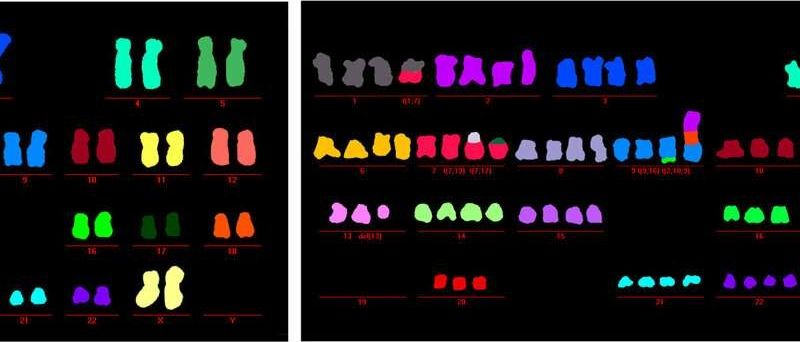Just as plastic tips protect the ends of shoelaces and keep them from fraying when we tie them, molecular tips called telomeres protect the ends of chromosomes and keep them from fusing when cells continually divide and duplicate their DNA. But while losing the plastic tips may lead to messy laces, telomere loss may lead to cancer.
Salk Institute scientists studying the relationship of telomeres to cancer made a surprising discovery: a cellular recycling process called autophagy—generally thought of as a survival mechanism—actually promotes the death of cells, thereby preventing cancer initiation.
The work, which appeared in the journal Nature on January 23, 2019, reveals autophagy to be a completely novel tumor-suppressing pathway and suggests that treatments to block the process in an effort to curb cancer may unintentionally promote it very early on.
